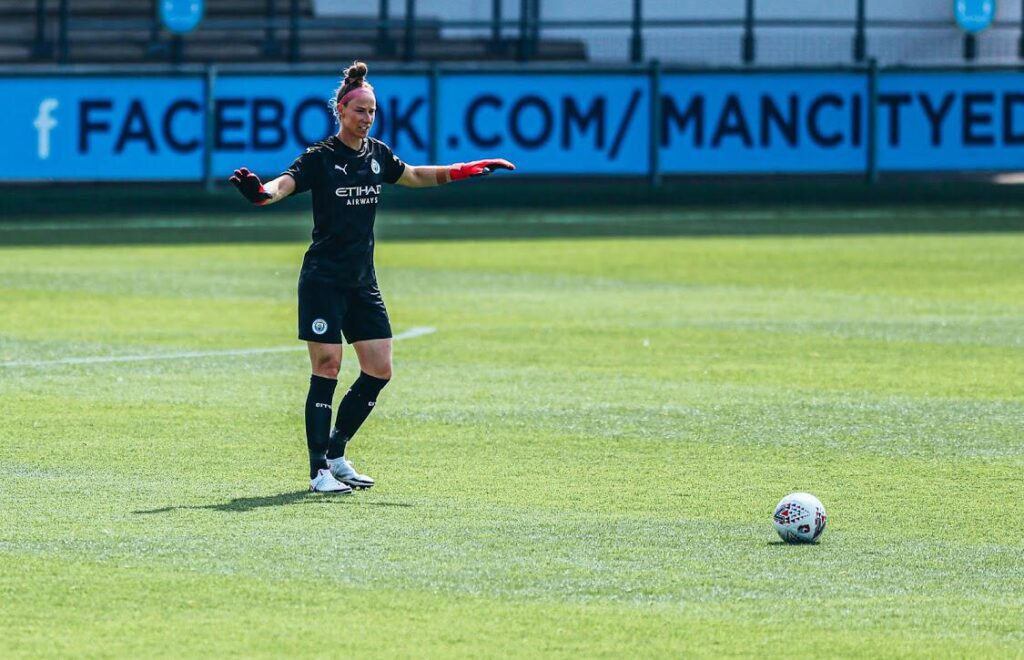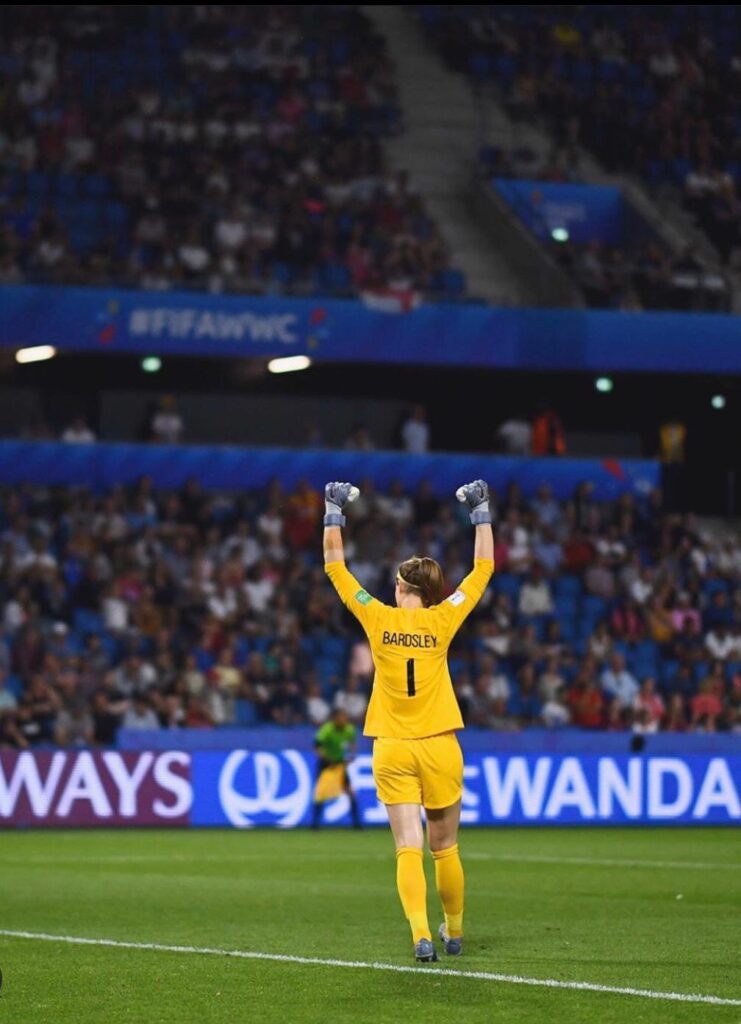
KAREN BARDSLEY | WOMEN’S EQUALITY AND TRACKSTANDS
In this edition of The Fix, we talk to one of our Friends of Quella & all-round awesome person, Karen Bardsley. Karen is the goalkeeper for Manchester City and the England national team and proud owner of a beautiful Quella Cambridge named Quigley!

Given that it’s Women’s Equality Day this month, we’d love to focus a little on your first hand experience of Women’s Equality as a successful sports professional and how this may have affected opportunities presented to you.
Within your long career in the sport, how has the attitude changed towards women in football and the women’s game in general? Do you think enough is being done to promote women’s game?
Clearly attitudes have changed towards women in football and the women’s game for the better. Yet, there are far too many changes to mention in a quick Q&A. Therefore, I’ll stick to three key themes – performance, inclusion and visibility. From 2011, evolving support and investment in the form of central contracts from the Football Association has enabled international players to focus solely on elite performance. As a result, fitness along with results on an international stage began developing.
Social perceptions must first be addressed and changed. It is no longer acceptable for women’s sport to be a token gesture.
Highlighted by these shifts and social equality pressures, opportunities began to emerge for domestic clubs such as Manchester City, Chelsea, Arsenal and more to invest and embed their respective women’s teams within their organisational/business strategy. Indeed, the ability to train as a full time, professional footballer resulted in a marked improvement of technical and tactical quality and moreover, the aforementioned improvements also led to increased media coverage and visibility. You only need to take a look at the steady increase in domestic viewership numbers, grassroots participation numbers and of course, the WWC 2019 semi-final numbers to see this, alongside the fact that it has become tradition for the Women’s FA Cup Final (and hopefully Community Shield) to be played at Wembley every year.
Interestingly, the players are not the only ones being driven by these new competitive trends. Clubs are also vying for their own unique market share within the women’s game, with the battle to stay ahead of the curve well underway. However, there is still much more to be done in order to see real change and one day, parity. Social perceptions must first be addressed and changed. It is no longer acceptable for women’s sport to be a token gesture. It has been evidenced by multiple teams, individuals and institutions that women will achieve and succeed when provided with equal opportunities.
Presumably you were always sporty? Were you one of those massively annoying kids at school that was brilliant at everything? What made you choose footie?
Ha! Yes. I have always been very sporty. As a child I always had a lot of energy and I was fearless. Naturally it translated into curiosity about anything athletic. Therefore, If I was given an opportunity to try a sport I would jump at the chance. Typically, I was quite good at it. For example, I had the opportunity to try football after a boring stint playing softball. I knew my Dad and Grandad loved it so I thought I would just give it ago. I can’t remember how good I was, but I do remember how much I loved it.
Did you have any idols growing up, or idols now that continue to inspire and push you forward?
I was obsessed with Peter Schmeichel when I was a kid. As a goalkeeper, I wanted to emulate him in every way possible because he had such an incredible influence on games. For instance, he was an imposing presence, he had a winning mentality and ultimately, he made unbelievable saves. However, these days I find inspiration in many different ways. From Ruth Bader Ginsberg challenging the status quo to everyday people living kindly and doing things for the greater good.
What advice would you give to a younger female wanting to make a career out of sport?
Go for it! Just get started. Find the thing that you’re best at or most passionate about, work hard and lastly, embrace every opportunity you get!

If not football, what do you think you would have chosen to do as a career?
When I was a kid, I wanted to be a whale trainer. As that is well(whale) and truly not in the cards I probably would have followed my passion for graphic design after University.
What’s next for you, do you have any personal goals (no pun intended) you’d like to accomplish, or are you ready to kick back?
KB: Other than more trackstand practice, I’ve got loads of little personal goals. Such as, finish my UEFA B coaching badge, stay more connected with friends in the States and help Manchester County FA become the leaders in Women and girls grassroots football development. Lastly and most obviously, my football goals are to win the league, FA cup, League Cup and Champions League this year!
Finally, we challenged you to learn to trackstand during lockdown – how did you get on? We checked beforehand, and it looks like the record is over 15 hours…
KB: Haha! Over 15 hours?! Oh my goodness, I’ve got no chance. I actually found it more difficult than I expected. I tried stationary balancing without a roll in and that just looked ridiculous as everyone can see from my Instagram. I also tried a roll on a hill which was much easier but there is no way I could stand for a minute let alone 15 + hours!! I’m very impressed and very jealous!
